Some opinions say that the cause comes from concerns about the obligation of electronic invoices according to Decree 70/2025/ND-CP amending Decree 123/2020/ND-CP dated October 19, 2020 regulating invoices and documents.
According to the Dam Doi Market Management Board, there are currently about 16 stalls selling ready-made clothes and cosmetics that have closed for fear that the inspection team will fine them for selling products without invoices or documents. Photo: Huynh Anh/VNA
However, actual surveys show that there are many other reasons such as the fear of being inspected for trading in goods of unknown origin, counterfeit goods, and poor quality goods, along with misunderstanding or incomplete understanding of tax policies and subjects applying electronic invoices.
According to Decree 70, only business households and individuals that pay taxes by lump-sum method and have annual revenue of 1 billion VND or more, operating in the fields of retail, restaurants, catering, hotels, supermarkets, passenger transport, entertainment, etc., selling goods and services directly to consumers are required to deploy electronic invoices generated from cash registers and transfer data to tax authorities.
According to the tax management database, there are currently 37,576 business households nationwide that are required to implement electronic invoices from cash registers, equivalent to about 1% of the total of more than 3.6 million business households. However, in reality, many small businesses, even those not subject to regulation, have chosen to temporarily suspend their business due to concerns or misunderstandings that all must implement cash register technology, which means having to change processes, increase investment costs and be subject to close supervision.
In Ho Chi Minh City, according to data from the Tax Department of Region 2, in May 2025, when the authorities intensified preparations for the implementation of Decree 70, 3,763 business households ceased operations or closed. However, only 440 of these households (accounting for 3.18%) had a revenue of over 1 billion VND and were required to use electronic invoices from cash registers, corresponding to a tax of 1.4 billion VND. This shows that the majority of households that ceased operations were not in the group required to apply electronic invoices from cash registers according to regulations.
Ho Chi Minh City Tax Department Region 2 said that up to now, 15,764 business households have implemented electronic invoices from cash registers according to Decree 70, accounting for 6.7% of the total 232,798 business households in the area. Of these, 11,865 households operate under the contract method and 3,899 households declare. Although accounting for 42.6% of households subject to implementation nationwide, this rate is still only about 0.4% of the total number of business households nationwide. This confirms that the regulation on electronic invoices only applies to households with revenue of 1 billion VND/year or more and in some specific fields, but confusion is widespread due to incomplete or incorrect information.
An officer of the Tax Department of Region 2 said that the regulation on electronic invoices from cash registers connected to transfer data to tax authorities does not change the tax policy currently applied to business households and individual businesses, but only changes the basis for determining revenue as a basis for tax authorities to determine the lump-sum tax rate of business households and individual businesses with revenue of 1 billion VND/year or more to be closer to the actual revenue generated by these households. This regulation does not affect the business activities of business households and individual businesses with revenue threshold below 1 billion VND/year.
According to experts, the fact that businesses cease operations is not a new phenomenon, but still occurs according to the market cycle. In the current context, the cause also comes from the difficult economic situation in the world and the country, declining purchasing power, consumers gradually shifting from traditional shopping to e-commerce platforms...
Notably, the fact that many businesses have stopped selling coincides with the time when the authorities have simultaneously launched inspections and handled violations of smuggling, trade fraud and counterfeit goods under the direction of the Prime Minister . In just over a month, the authorities have discovered many cases related to fake functional foods, poor quality cosmetics, drugs without circulation licenses, milk mixed with chemicals...
At many large markets and shopping malls in Ho Chi Minh City, the market management force coordinated with the police, customs and health agencies to conduct simultaneous inspections, without any "restricted areas". As part of the plan to implement Official Dispatch No. 65/CD-TTg and Directive No. 13/CT-TTg of the Prime Minister on launching a peak period to fight against smuggling, trade fraud and counterfeit goods nationwide, through monitoring business activities at Saigon Square Shopping Center, the Working Group of the Market Management Department under the Department of Domestic Market Management and Development (Ministry of Industry and Trade) continued to detect and punish 2 households selling bags, wallets and fashion products that counterfeited famous brands.
Previously, on May 29, 6 working groups of the Department of Domestic Market Management and Development deployed to inspect a series of booths at Saigon Square Trade Center. Despite efforts to close the booths to avoid detection, thousands of counterfeit products of world-famous brands such as watches, handbags, wallets and eyeglasses were still discovered and seized by the authorities.
During the past 2 weeks, the Working Groups of the Department of Domestic Market Management and Development have been constantly on duty, monitoring business activities at kiosks at Saigon Square (Ho Chi Minh City). In response to this move, many stalls have chosen to close, even pack and transport goods out of the business location to avoid inspection.
According to economist Nguyen Tri Hieu, the reality at the two major economic locomotives shows that the temporary suspension of small businesses is not due to tax policies but to concerns, misunderstandings and market pressure. “If there is specific propaganda and guidance, most households will continue to operate normally, not affected by the new policies,” he commented.
In this situation, the Minister of Finance has sent an Open Letter to the Vietnam Association of Certified Public Accountants, the Vietnam Association of Accountants and Auditors, tax agents, accounting service providers, tax and technology consulting companies. The Letter requests these organizations to actively support taxpayers, especially individual business households, to ensure the implementation of electronic invoices from cash registers in accordance with regulations, without causing confusion or misunderstanding.
Along with that, the Tax Department also sent a letter to business households to clearly affirm the policy of not increasing taxes, not causing difficulties for people, but to increase transparency and prevent budget losses. The implementation of electronic invoices from cash registers is a necessary solution to create a fair and transparent playing field between business models, while effectively preventing tax evasion and commercial fraud.
The Government also issued Official Dispatch No. 88/CD-TTg dated June 12, 2025 requesting ministries, branches and localities to strengthen management and promote the implementation of electronic invoices generated from cash registers in the activities of selling goods and providing services directly to consumers. This is an important step in the process of modernizing the tax system, controlling actual revenue, and protecting consumer rights through transparency of transactions.
Economic experts say that in the context of economic fluctuations, consumers are increasingly cautious and the trend of online shopping is increasing, traditional businesses are forced to change their thinking and operating methods. Applying technology and using electronic invoices is not only a legal requirement but also a tool to help businesses keep up with the modern, transparent, efficient and sustainable business environment.
According to VNA
Source: https://doanhnghiepvn.vn/kinh-te/ho-kinh-doanh-dong-cua-hang-loat-do-hoa-don-dien-tu-hay-tu-hang-hoa-khong-ro-xuat-xu-/20250616061241610


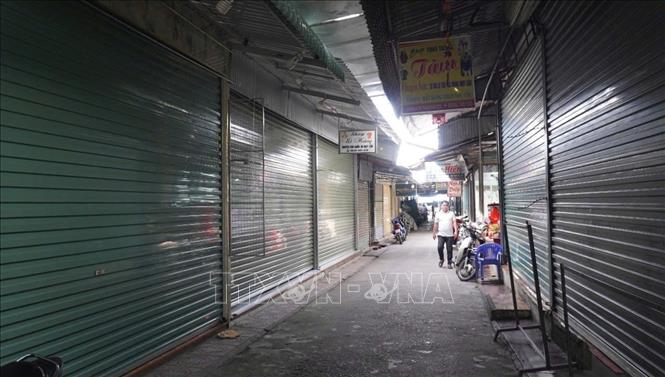








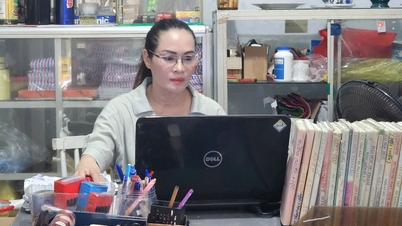




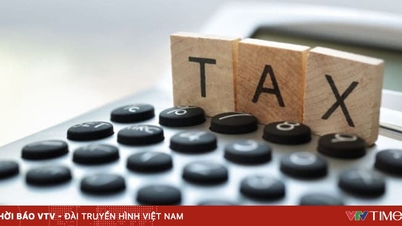





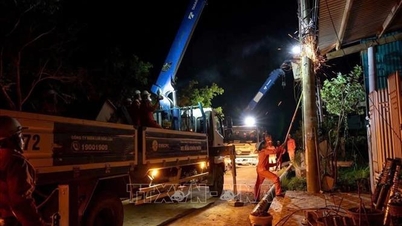





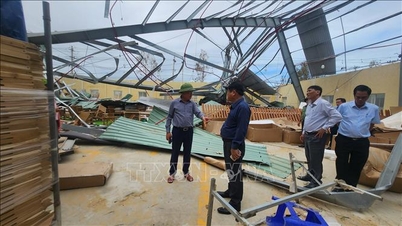









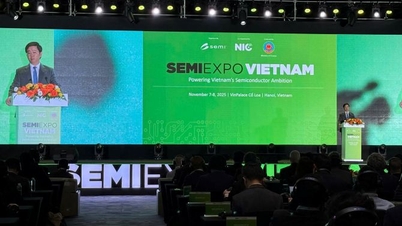










































































Comment (0)